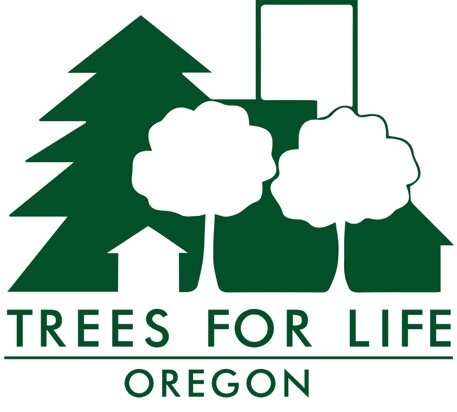What Ever Happened to the Street Tree Task Force?
The short answer is that the City Council's approval to create a Street Tree Task Force including $100,000 allocated for that purpose has been subsumed under the Portland Parks & Recreation’s broader “A Sustainable Future” project (Urban Forestry is under PP&R). This means that the city’s promise to address the hugely problematic issue of Portland street tree maintenance is now subsumed under a larger effort to explore funding options for PP&R as a whole. As a result, the City is not carrying out as intended or as initially authorized by City Council the Urban Forestry Commission’s proposal to assess programmatic and funding options for maintaining Portland's street tree assets.
Here’s the history. If it seems convoluted, that’s because it is: In May 2017, the City Council supported the idea of an inter-bureau task force to focus on ways for the city to assume responsibility for maintaining street trees and to incorporate trees, especially large-form trees, into street and right-of-way improvement and development projects. Currently, the adjacent homeowner is responsible for maintaining street trees, paying to take dead trees down, and planting replacement trees—a daunting and unrealistic prospect for low-income residents, resulting in an urban canopy that is not as large and robust as it could be.
The Street Tree Task Force idea was first raised in an extremely cogent proposal written by members of the Policy Committee with input from the Urban Forestry Commission (UFC) that it advises. City Council determined it would discuss the formation of the proposed Street Tree Task Force at a work session in September 2017, a date then moved to November 14. At that meeting the City Forester reminded City Commissioners and bureau representatives that, unlike Portland, many cities such as Los Angeles, Salem, Eugene, Washington, D.C., and New York City manage street trees and maintain them. In May 2018 the City Council approved $100,000 that Commissioner Fritz requested for the Street Trees Task Force. It was then decided that the $100,000 needed to be used by PP&R in FY 2018-2019 for another pressing need, and that the $100,000 allocation would be used starting Jan. 1, 2019, a date that came and went. By July 1, 2019, PP&R was facing severe budget challenges and needed to explore more stable funding. The start date for the Street Tree Task Force was to be July 1, 2019, with findings to be presented to City Council by February 2020. However, at an Aug. 15, 2019 UFC meeting, PP&R director Adena Long said nothing about the Street Trees Task Force but noted that UFC chair Vivek Shandas had been appointed to the “Alternatives Funding Task Force” that PP&R was forming.
That takes us to the Nov. 26 work session of the City Council, which was devoted to PP&R’s “A Sustainable Future” session, where Commissioner Fritz asked about the findings of the Street Tree Task Force.
According to UFC and Trees For Life member Bruce Nelson, “Many people, including Commissioner Fritz and her staff, worked many hours over several years to get the City Council to allocate the $100,000 to explore the issue of street tree maintenance of underserved neighborhoods, indeed, all neighborhoods, as a potential means to address challenges in maintaining and improving the urban canopy. Over three years (2016-2019) a variety of setbacks occurred including the expected facilitator for this task force leaving her employment with the City, an unanticipated shortfall of funds within PP&R that led to putting off for one fiscal year the use of the funds allocated by City Council for this narrowly focused task force, and the discovery by PP&R that it really did have a long-term unsustainable budgeting situation.”
All of this seems to have led to the absorption of the Urban-Forestry-driven Street Tree Task Force into PP&R’s “A Sustainable Future” work.
At the Nov. 26 Portland City Council work session, three scenarios were presented to the City Council. One of them requires an additional $119 million a year, of which $18 million would go to a new street tree maintenance program. The city would have to come up with a way to find the extra funds to maintain Portland’s street trees and thus address the equity issues surrounding responsibility for planting and caring for street trees.
More to come, we hope, in January 2020, when more information on the subject will be brought to the City Council for its consideration.
Interested in Reports the City Commissioned on the Costs and Benefits of Taking Over Street Tree Maintenance?
Both reports, one written in 2009 for the Bureau of Planning and Sustainability, and one drafted this year, were done by the Davey Resource Group. After the first report, the City decided not to assume responsibility for street tree maintenance. Yet having homeowners responsible for their street trees remains a huge problem.
In the 2019 working draft—commissioned a decade after the first report—the Davey Resource Group appears to have assumed that Urban Forestry will define the tasks to be performed and contracted out to nonprofit and for-profit companies to do the actual work; Urban Forestry staff would not perform any of the fieldwork involved in street tree maintenance, and such fieldwork can be done less expensively by private contractors; Urban Forestry would maintain a workforce to do the maintenance work in Portland Parks and some of the emergency street tree work that occurs after severe storms; and that Urban Forestry staff would have responsibility for public outreach about the changes.
In its 2019 draft report, the Davey Resource Group estimates that its “optimal” option, where the City maintains all street trees and prunes them every five years, would cost $12.3 million a year. A less costly “standard” option, where the City maintains all street trees and prunes them every ten years, would cost $8.8 million a year. However, these estimates are considerably less than the $18 million that Portland Parks and Recreation presented at the Nov. 26 City Council working session (see above).
